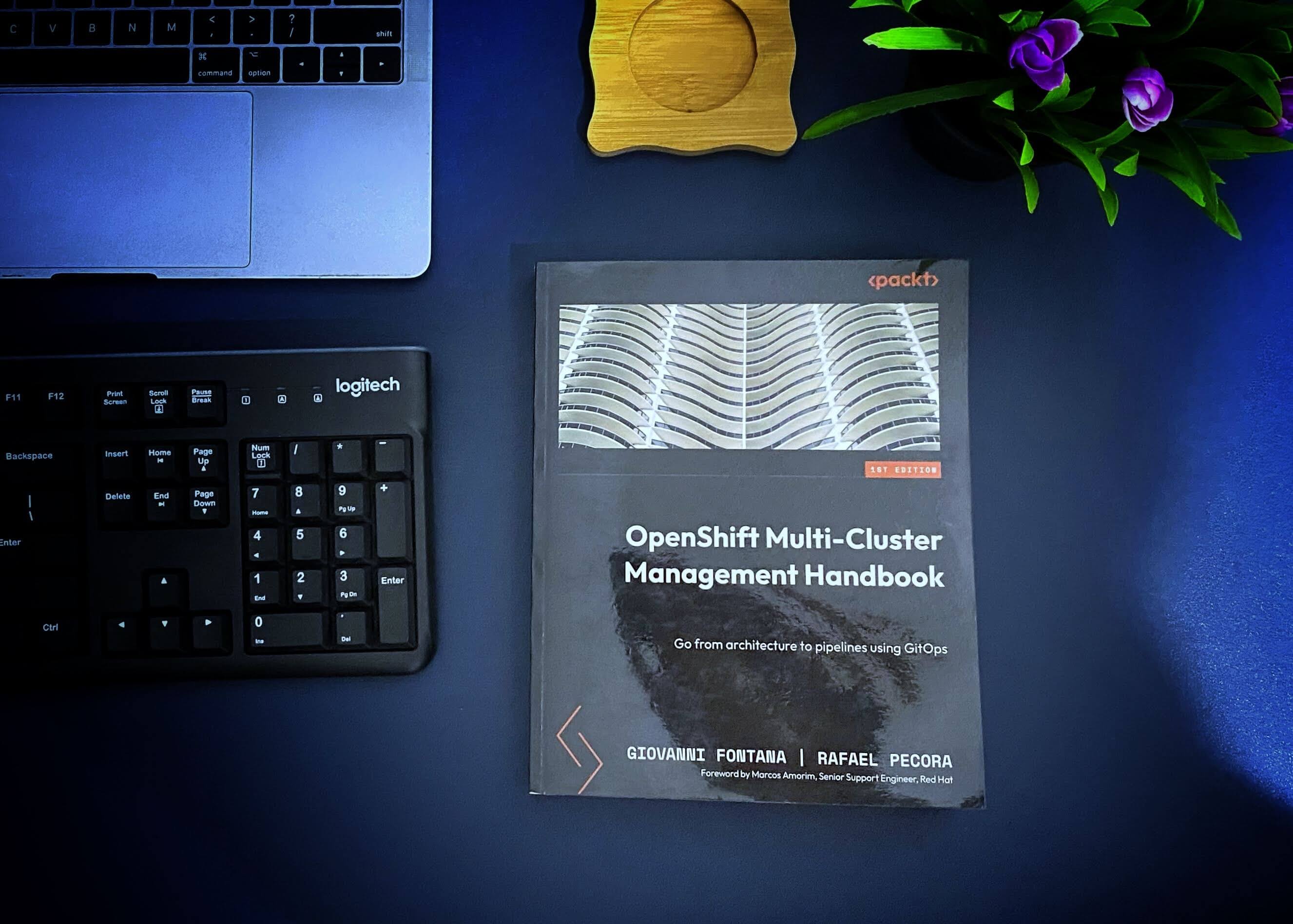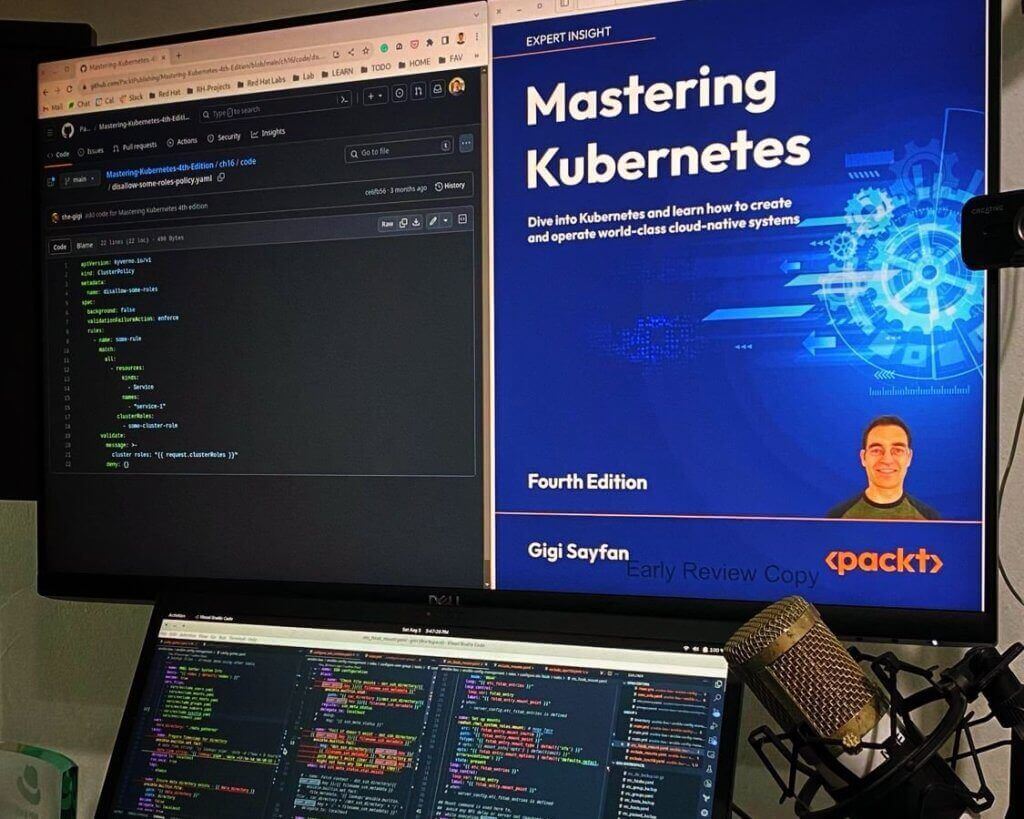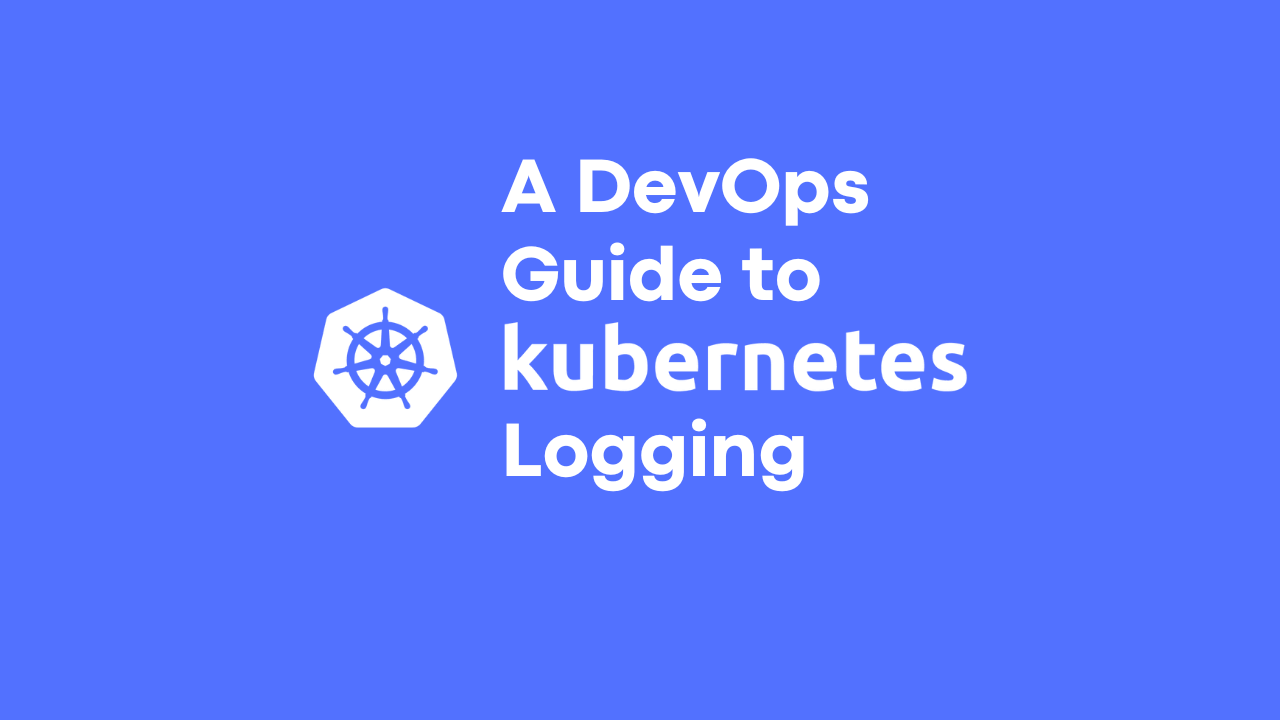Book Review: OpenShift Multi-Cluster Management Handbook
-
 Gineesh Madapparambath
Gineesh Madapparambath
- Books, Dev ops, Kubernetes
- November 19, 2023

In the dynamic landscape of multi-cluster architectures, finding reliable and practical resources can be a challenge. Amidst the scarcity of such references, the “ OpenShift Multi-Cluster Management Handbook ” by Giovanni Fontana and Rafael Pecora emerges as a beacon for those navigating the intricacies of this evolving field.
From the outset, the authors delve into the significance of multi-cluster architectures, addressing vendor lock-in concerns and the unique challenges they present. The book provides a comprehensive exploration of OpenShift components, elucidating details and offering insights into compute and storage sizing through practical examples.
The second part of the book is a treasure trove of knowledge, guiding readers through typical OpenShift deployment scenarios with meticulous steps. This section not only covers troubleshooting but also imparts best practices across various aspects, including OpenShift, network configurations, and security considerations.
Part three introduces OpenShift Pipelines using Tekton and delves into OpenShift GitOps with Argo CD, gradually advancing to Multi-cluster GitOps and management strategies. The container of essential chapters encompasses topics crucial for a holistic understanding.
Particular highlights include discussions on Red Hat Advanced Cluster Management (RHACM) and Red Hat Advanced Cluster Security (RHACS), adding depth to the reader’s comprehension.
This handbook is a highly recommended resource for those seeking proficiency in OpenShift Multi-Cluster Management. Thanks to Linda Pearson and Packt for providing this invaluable resource.
https://www.amazon.com/OpenShift-Multi-Cluster-Management-Handbook-architecture/dp/1803235284?keywords=OpenShift+Multi-Cluster+Management+Handbook&qid=1700381517&sr=8-1&linkCode=li2&tag=iamgini-20&linkId=46eb9a1c3b10c996e6b061e9c9e9d6cf&language=en_US&ref_=as_li_ss_il





Gineesh Madapparambath
Gineesh Madapparambath is the founder of techbeatly. He is the co-author of The Kubernetes Bible, Second Edition and the author of Ansible for Real Life Automation. He has worked as a Systems Engineer, Automation Specialist, and content author. His primary focus is on Ansible Automation, Containerisation (OpenShift & Kubernetes), and Infrastructure as Code (Terraform). (Read more: iamgini.com)
Note
Disclaimer: The views expressed and the content shared in all published articles on this website are solely those of the respective authors, and they do not necessarily reflect the views of the author’s employer or the techbeatly platform. We strive to ensure the accuracy and validity of the content published on our website. However, we cannot guarantee the absolute correctness or completeness of the information provided. It is the responsibility of the readers and users of this website to verify the accuracy and appropriateness of any information or opinions expressed within the articles. If you come across any content that you believe to be incorrect or invalid, please contact us immediately so that we can address the issue promptly.


